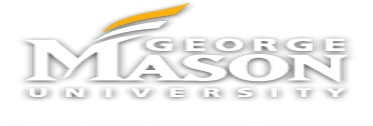

Research Contributions:
The research evolving from the center will contribute to the field's understanding of research-based evidence on effective mathematics professional development models to innovate the teaching of STEM based mathematics content with diverse student populations to improve student learning. It will leverage emerging cognitive technology and research on how students learn mathematics to promote mathematical proficiency. The conceptual framework developed through this research will identify key factors that influence teacher's effective use of technology, teaching and questioning strategies that support student learning, representational fluency and algebraic thinking that can be applied to teaching other mathematical concepts using technology. The involvement of teachers as researchers and designers will provide a strategic research infrastructure linking researchers, graduate and undergraduate students, practitioners and mentoring research practitioners at multiple levels.
The research activities of the center will be communicated through publications in peer-reviewed journals, book chapters, and conference proceedings and via national and international presentations. In addition, center research will also focus on the development of educational modules and web-based curriculum materials. The center will also host an annual research conference at GMU which will provide a medium for exchange of research between students and faculty and other renowned experts working on the broad theme
Broader impacts from the center's contribution also include:
Support from SCHEV: The two funded programs ACT NOW (2008-2009) and IMPACT (2009-2010) has impacted our Mathematics Educational Leadership program by providing tuition for a total of 150 Masters students and has provided teaching/research experiences for our doctoral students as well.
Support from the newly funded VA-DOE Math Science Partnership: COMPLETE (2010-2012) will support 10 undergraduate scholars, 200 teachers who earn 3-6 graduate credits, support for 3 graduate students (2 masters and 1 doctoral). The support form the MSP grants will generate tuition funding for the Office of Educational Services and the University.
Impact on QEP for University - Dr. Seshaiyer currently serves on the advisory council for the Center for Teaching Excellence and also on the Quality Enhancement Planning University Committee. Together with Dr. Suh, we plan to create programs in the Center that will align to the QEP initiatives in promoting a culture of scholarship. Specifically, the center will help to support student scholarships through collaborations with the school district and faculty at GMU.
Impact for UAP programs and the Honors College - Dr. Seshaiyer currently serves on the Advisory Council of the Honors College and also has mentored a student in the Undergraduate Apprenticeship Program. Together with Dr. Suh, we plan to create new undergraduate scholarships that will be administered jointly with the UAP and Honors College to promote research in the area of mathematics education. We are already in communication with Zofia Burr (Dean, Honors College), Kathy Alligood (Associate Dean, Honors College) and Deirdre Moloney (Director, UAP Program).
COLLABORATION.
Outside GMU: The Center will have an active math science partnership with six school districts: Fairfax, Loudoun, Prince William, Alexandria, Falls Church, Manassas City. Besides National Organizations such as the National Council of Teachers of Mathematics (NCTM) and the Association of Women in Mathematics (AWM) are planning to work with our center to broaden their impact on teachers of mathematics: Monique Lynch, (NCTM); Director of Professional Development, and Patrick Vennebush, NCTM Illuminations Project Coordinator and Suzanne Lenhart, Former President of Association of Women in Mathematics (AWM) have agreed to present seminars/workshops for teachers.
Inside GMU: The Center will actively collaborate with the Do-IT, GMU-TV to create lesson modules and come up with new ways to support and promote the Distance Learning Program at GMU. The Center will also promote active faculty mentorship through student scholarships generated in conjunction with George Mason's UAP program and QEP initiatives.


